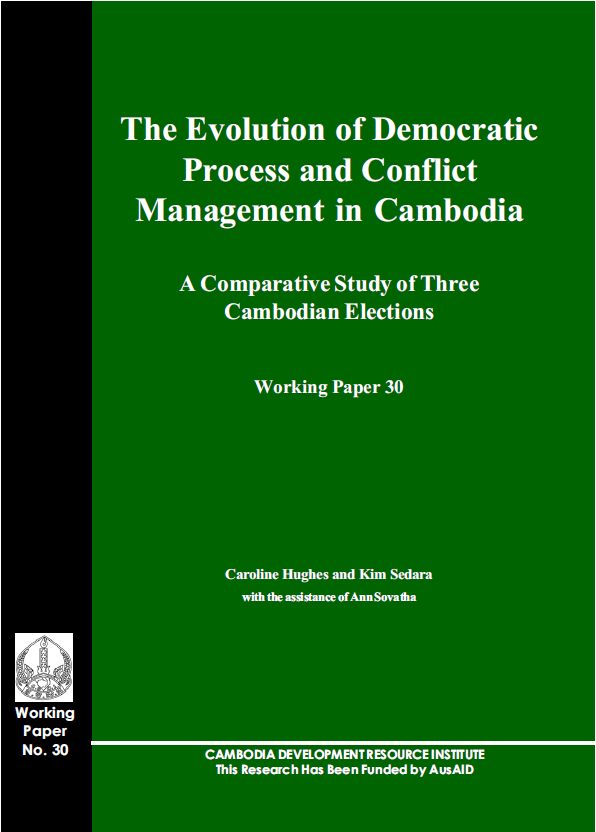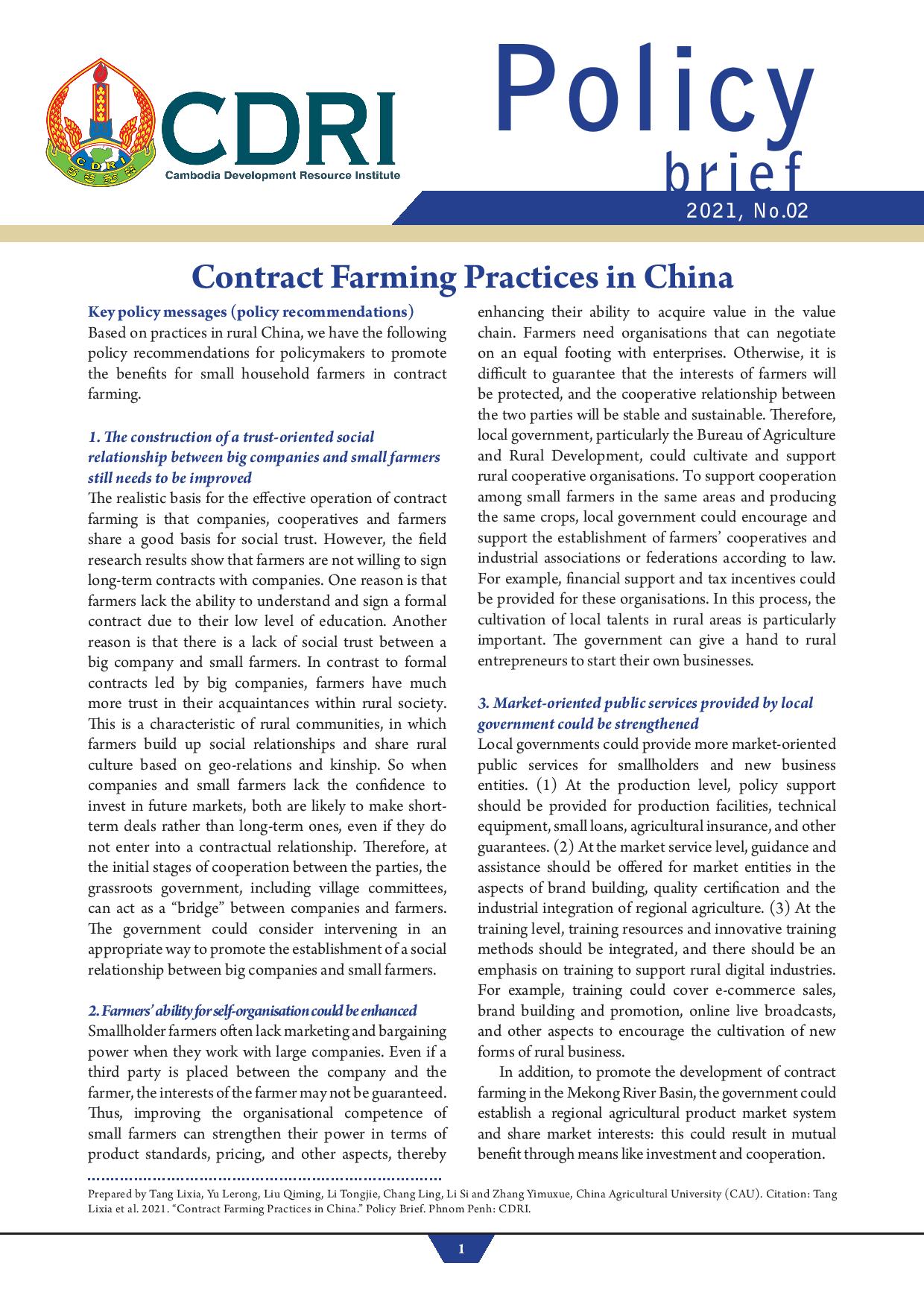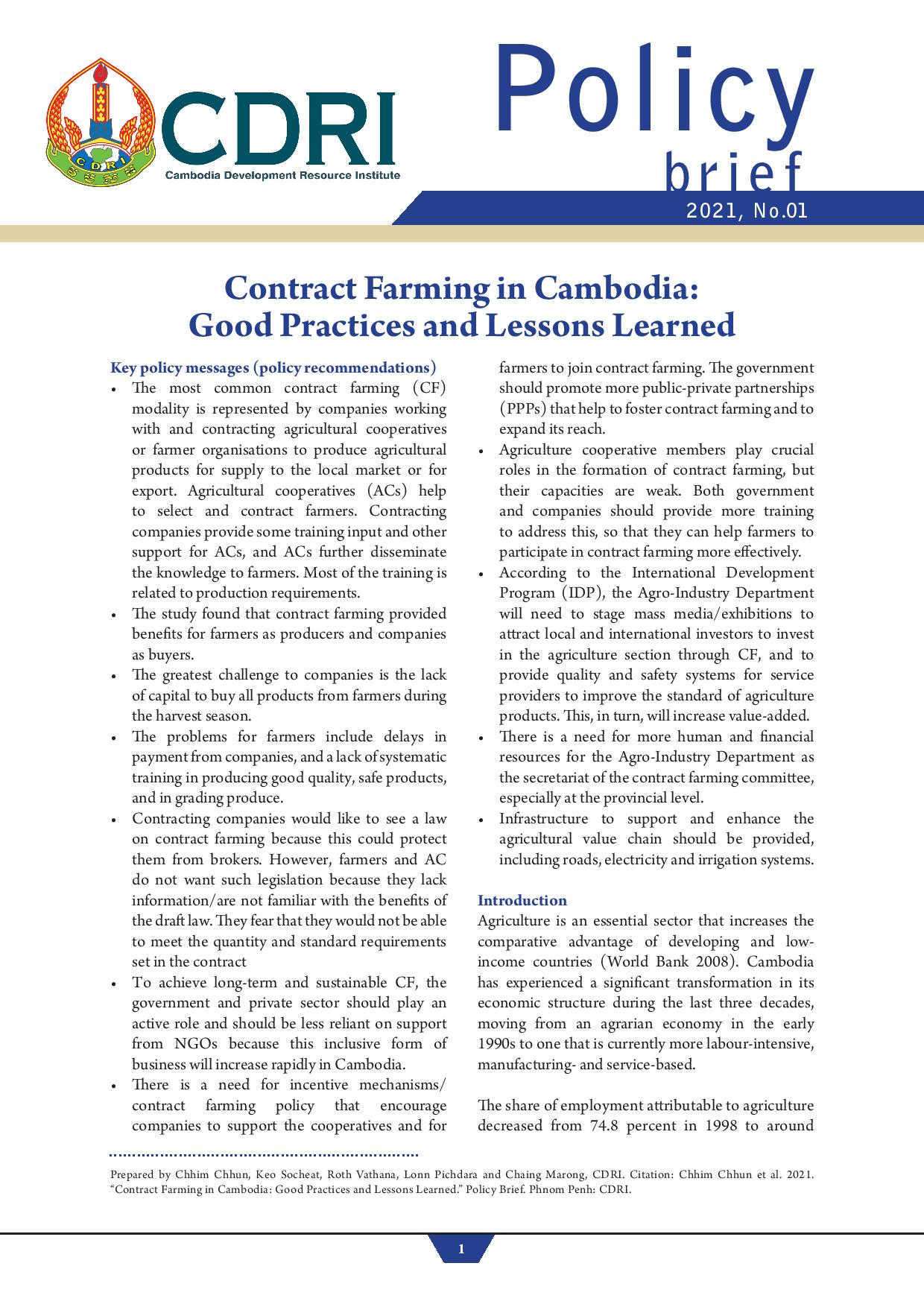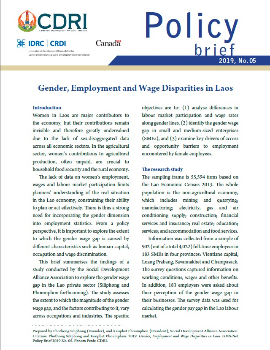
The Evolution of Demoncratic Process and Conflict Management in Cambodia: A Comparative Study of Three Cambodian Elections
Keyword: Democratic process, conflict management, comparative study, elections, National Election Committee
Khmer PDF (6)
Abstract/Summary
This study examines the evolution of mechanisms for conflict management since 1998, and their effectiveness in preventing conflict escalation during the general elections of 2003. The study draws on extensive field research carried out by CDRI researchers on the 1998 and 2003 elections, and on the practical experience of conflict management gained by staff of CDRI’s Centre for Peace and Development which, through its Committee for Conflict Prevention in Cambodian Elections, hosted a four year programme of meetings between election organisers and representatives of political and civil society.
The present study looked in detail at three specific developments relevant to conflict management that took place between 1998 to 2003, namely the reform of government institutions involved in electoral conflict management, particularly the NEC and the commune level of government; the development of civil society programmes for conflict management; and the changes in electoral procedures, including the overall legal framework for elections, the complaints procedure, and the voter registration procedures. Fieldwork was conducted during the 2003 election period to investigate the impact of these changes on the ability to manage electoral conflict at national and local level. Ability to manage conflict management effectively is regarded in this study as a function of the technical capacity and political legitimacy of institutions, and the level of trust and goodwill between political actors. It is also noted that effective conflict management can itself improve the political legitimacy of institutions and the level of trust between political actors.
Electoral conflicts were identified at three stages of the research. Before the election, electoral conflicts were identified through initial interviews with political party representatives, through a survey of statements by political actors in public and in COPCEL meetings, and through a survey of issues raised in the press in the six months leading up to the campaign period. During the election campaign period, conflicts were identified through interviews with political actors at national and local level. Following polling day, conflicts were identified through further interviews with political actors, analysis of complaints submitted to the NEC, and through surveys of the justifications put forward by the losing parties for their rejection of the results. Management of conflict was investigated primarily through interviews with parties to conflict and conflict managers, and through survey of any available written materials.
Overall, the study drew two sets of conclusions. First, it drew conclusions with respect to the impact of the key developments identified on the technical capacity and political legitimacy of institutions charged with conflict management – primarily the NEC, PECs and CECs, and commune authorities. Second, it drew conclusions as to the types of conflicts that are most easily managed by existing mechanisms in Cambodia, as well as identifying problematic elements that lead to conflict escalation.



